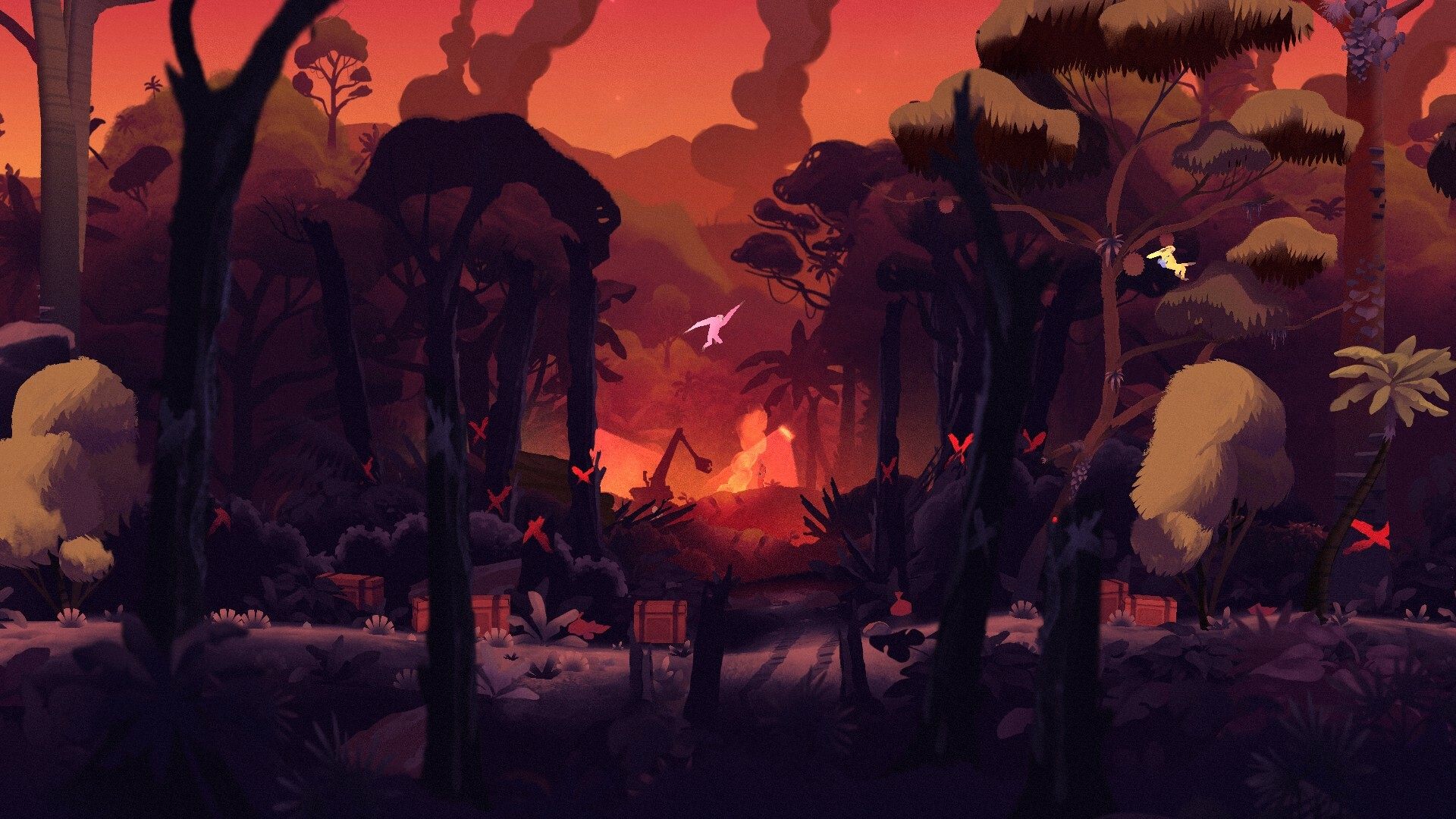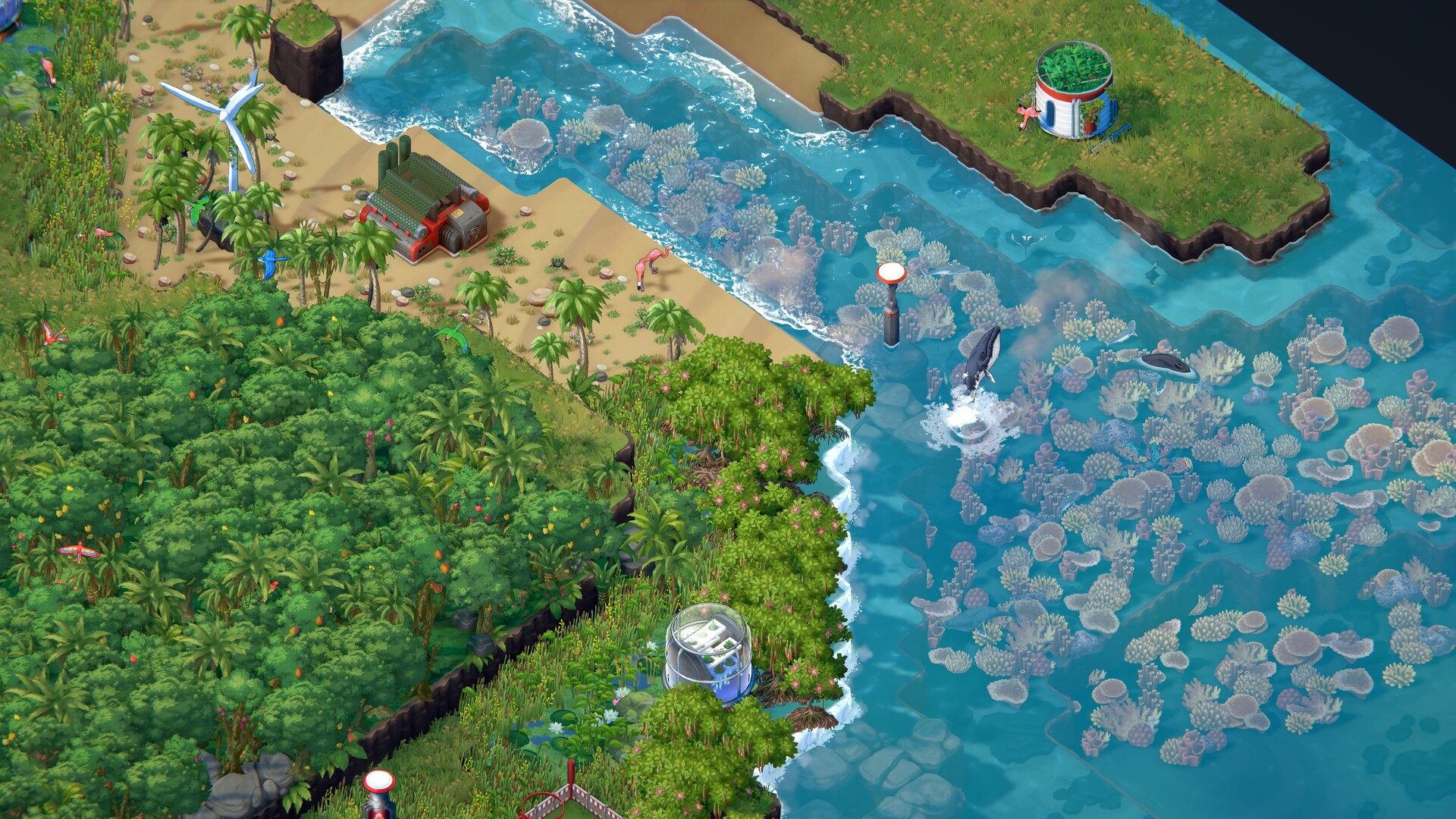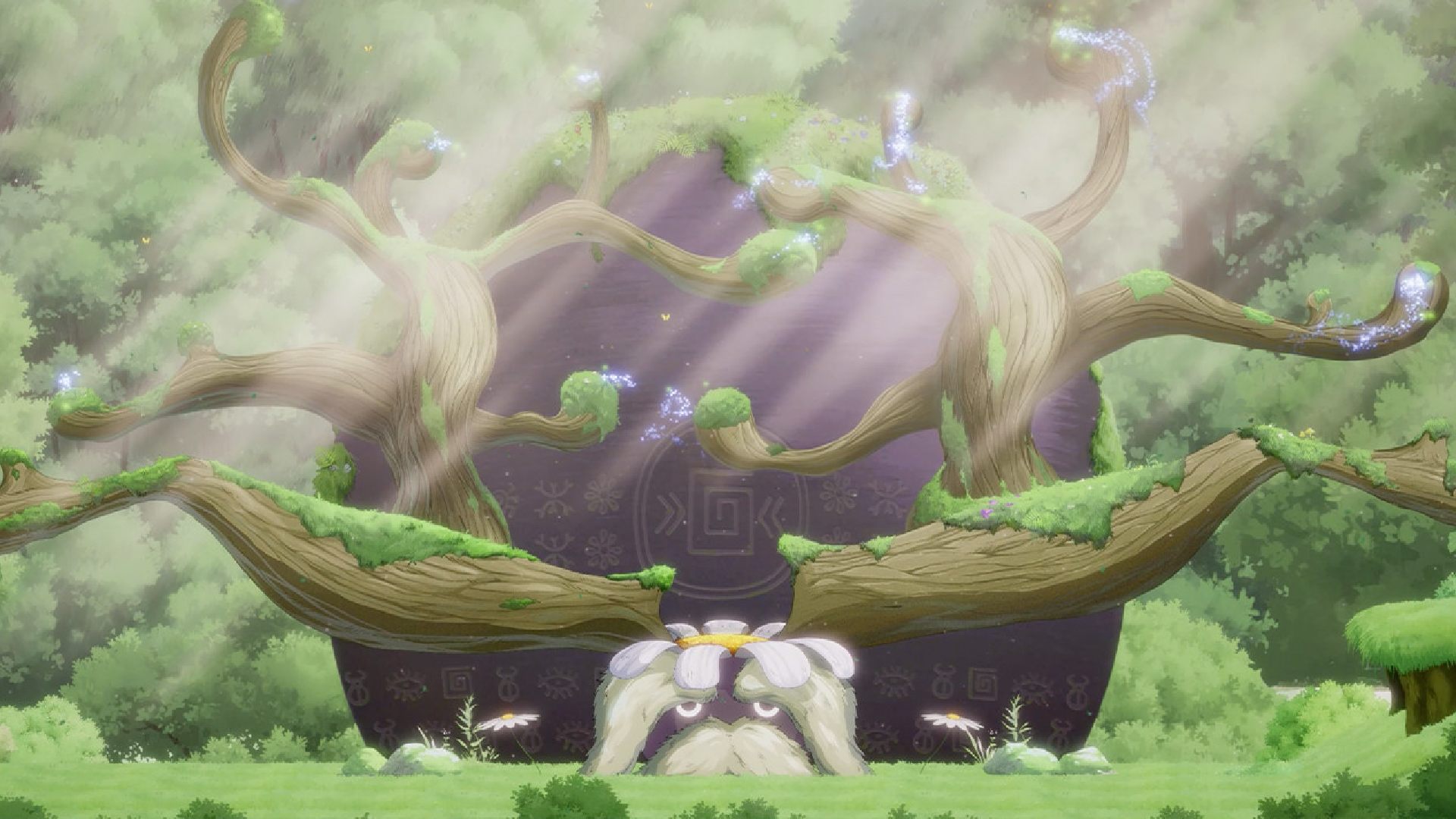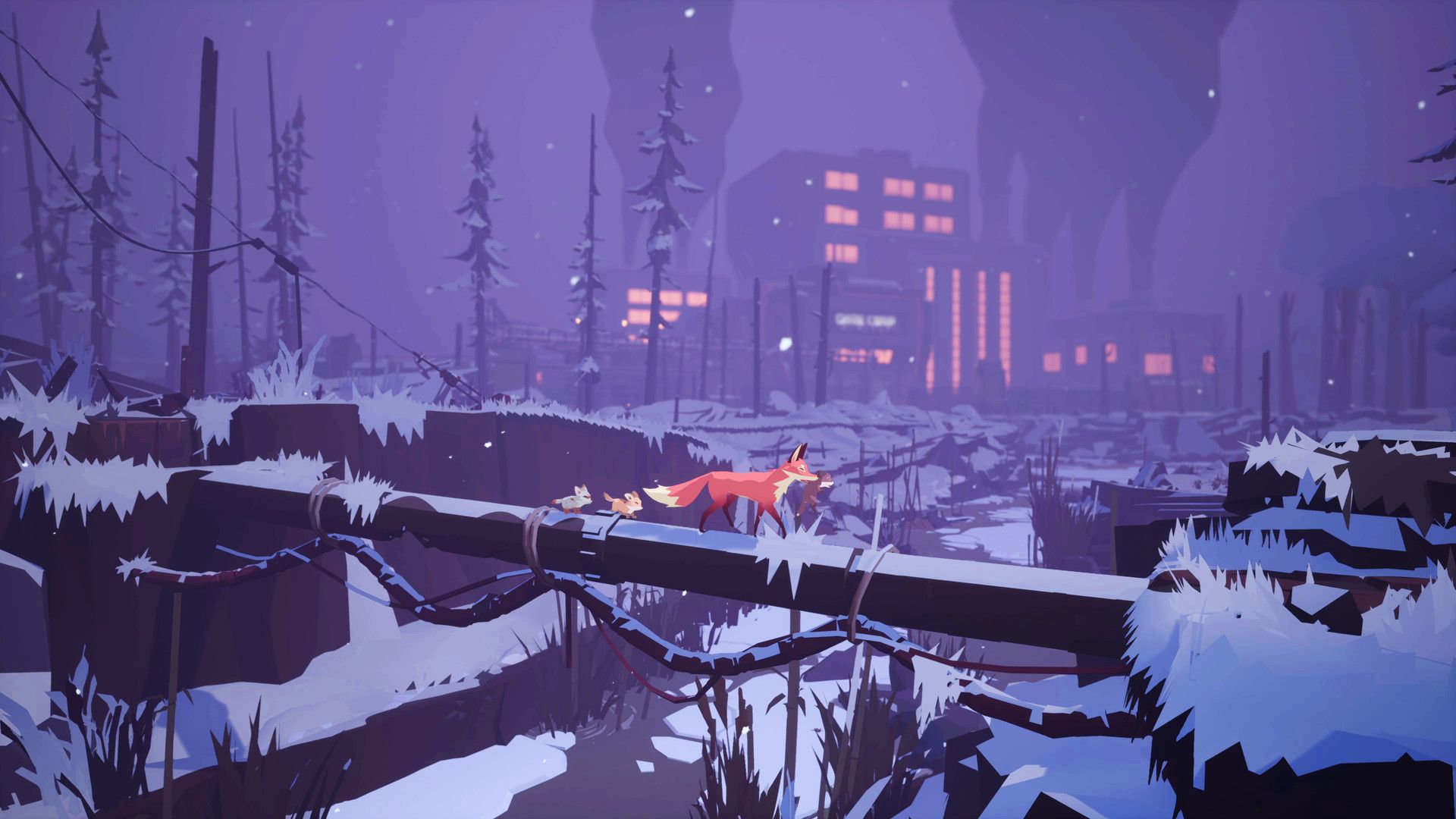Video games about the environment have made me more conscious than ever about my impact
Time to reflect

Sign up for breaking news, reviews, opinion, top tech deals, and more.
You are now subscribed
Your newsletter sign-up was successful
Games that put me in the middle of a forest and challenge me to work out how to survive off the land while building a new life resonate deeply with me. There’s something about having to rely on the land to create and establish a life for myself or having to use the environment to your advantage rather than tearing it down which I just love.
But it’s not only the concept of using the natural world to build from the ground up that I love, it’s how you use it to immerse yourself in the natural world in a variety of ways. Fortunately, there are a huge number of such games that open the doors to the natural world; particularly excellent for people who can’t make the most of it themselves such as myself, living in a one-bedroom city-based flat.
If you’re looking for a way to live off the land, a farming sim will more than happily accommodate you; if you want to go hands-on in construction, a survival game or city builder has you covered. Or, if you’re looking to see things from the perspective of an animal, an adventure game that puts you into the paws or claws of a critter wading through the woods will scratch that itch.
For all the fun they provide, I have found that, more often than not, these games convey a much deeper meaning about the natural world rather than just being a virtual means to enjoy it. The more I delve into this style of game, the more I notice nods toward the impact we have on the real world through our actions. A lot of the time, the more we build and explore, the greater (and worse) the impact we have on the world around us. However, this is not something you pick up on until after the fact, leaving you desperately trying to rectify situations following your destructive actions in a vain attempt to heal or save the virtual planet you’ve been steadily destroying.
From the ground up

Throughout the ‘relaxing’ strategy game, Terra Nil, you’re challenged to transform wastelands into thriving ecosystems by using machines to perform tasks like water purification, forest cultivation, or reintroducing wildlife. Reactive audio cues let you know that you’re working toward the end goal, and you feel genuinely satisfied as you watch life return to barren stretches of land. It’s designed to be a relaxing experience while also forcing you to think responsibly about how you approach certain situations to find a resolution.
But, the job doesn’t stop there: once you’re satisfied with your work and you’ve reintroduced a species to a once desolate landscape, you have to recycle all the machines you’ve placed by sending out drones to go and collect them. This is where the idea of these games being curated to promote a sense of relaxation somewhat falters, since, more often than not, you place machines wherever is most convenient at the moment with no thought of having to retrieve them later.
However, once you’re aware of the fact you have to retrace your steps, you start putting in far more thought and deliberation over where to place things in a way that makes it easier for you later down the line. You start to consider your impact on the environment and how you can continue to progress without having to carve a new river or create a new road to get to your destination at the end. It’s a subtle nod, but a nod nonetheless.
Sign up for breaking news, reviews, opinion, top tech deals, and more.
The same can be said for Before We Leave, a city-building game that shows the impact of your decisions on a civilization. For example, placing buildings that generate a lot of noise like schools or kitchens in quiet villages will cause upset and noise pollution, and placing machinery like drills and oil rigs in densely populated areas will result in air pollution and health issues. You have to factor all of this into a playthrough, which triggers this underlying consideration of the impact you’re having like with Terra Nil. Except this time your actions can easily harm people if you’ve hastily constructed things instead of acted carefully with a forward-looking plan.
The effect of this careful decision-making in games like this might not feel like it has such a significant impact, but, afterward, I found myself more curious about issues such as noise and air pollution affecting us on a wider scale in the real world - especially how it's causing detriment to the planet. The saddening side of the story is that, unlike a game like Terra Nil, it’s a lot harder to go back on ourselves and remove the machines to rectify our past mistakes in real life. This is where the importance of playing these games starts to shine its brightest.
The eyes of another

Perhaps one of the most powerful ways I’ve seen this message of impact translated into video game format is by putting the player into the position of a species directly impacted by humankind. I’ve played a huge number of games that use animal extinction or deforestation as a backbone for their experience, and it’s extremely powerful and effective.
Endling: Extinction is Forever, and Gibbon: Beyond the Trees are two games I adore that relay an incredibly emotional message. You get to take control of a cute little animal in both games - immediately appealing - but, before long, you start to notice things turning bleak. Before you know it it’s a race against time to see if you can make it out of a world of destruction alive, and the vast majority of time the attachment you’ve developed for your cutesy animal companion is put to the test.
This isn’t a new trend. Video games that challenge you to come out of a situation alive when everything is falling apart around you are more common than not, but usually, they’re coated in sci-fi, fantasy, or other-worldly themes. What makes the games I’ve mentioned so special is how accurately they simulate the real world. They showcase familiar biomes and species we’ve already admired in real life rather than fantastical creatures, making their call to recognize our own impact on the planet far more relatable, and emotional.
You end up feeling both responsible for and guilty about the character you’re controlling or the environment you’re trying to restore since you know that one bad move will have you ruining a whole world.
What if I’m the monster?

A lot of these games will tiptoe around an explicit message: ‘The real planet and these animals are dying, please try and help if you can’. This usually comes after we step away from our screens and realize that these issues we’ve just spent hours trying to correct in a game are happening right now across our planet.
However, I think games like Terra Nil and Endling: Extinction is Forever can play a crucial role in spreading an ideal that we can take into the real world. They provide experiences that stay with us, valuable insight, and information; all of which we can then share with others. This keeps the discourse going and highlights a purpose that these games were possibly intended for.
As a result of these games and their impact, I’m more conscious of the ideas I’m taking in, and I’m taking more time to read between the lines in each experience. The unwritten ideals these titles promote provide serious food for thought, no doubt the intended purpose of games with such a heavy emphasis on themes like deforestation and extinction.
It’s a more digestible, albeit quite emotional, way to understand the issues at hand in real life rather than reading statistics or interpreting graphs on a screen. This is especially important given that the younger generation (sometimes the target audience for these games) will be the ones dealing with the repercussions of our actions if we choose to ignore the messages that games are trying to convey. This, in turn, makes it far more accessible for players of all ages to engage with and understand why we should be conscious of our actions in the real world.
We’ve got a list of all the best indie games if you’re looking for other potentially emotional adventures to embark on. However, if you’re on the hunt for something more easy-going then our guide to the best cozy Switch games might be of interest.

Kara is an Evergreen writer at TechRadar Gaming. With a degree in Journalism and a passion for the weird and wonderful, she's spent the last few years as a freelance video game journalist, with bylines at NintendoLife, Attack of the Fanboy, Prima Games, and sister publication, GamesRadar+. Outside of gaming, you'll find her re-watching Gilmore Girls or trying to cram yet another collectible onto a shelf that desperately needs some organizing.